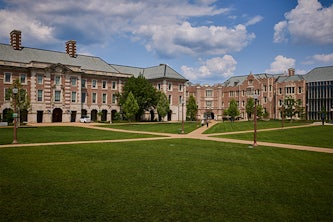
Abhinav Jha
- Phone
314-273-2655 - Office
Whitaker Hall, Room 200D
Education
PhD, University of Arizona, 2013Expertise
Develops computational-imaging methods for diagnosing and treating diseases
Research
Abhinav K. Jha's research is in the design, evaluation and translation of computational medical imaging methods for optimized performance in diagnostic and therapeutic tasks using quantitative measures of task performance. For this purpose, his group develops novel physics and artificial intelligence (AI)-based methods for image reconstruction, image enhancement, image analysis and task-based image-quality evaluation. One major research direction is in integrating AI and task-based assessment to make medical imaging more comfortable and accessible for patients by reducing acquisition dose and scanning times, and more valuable for physicians by automating image-analysis procedures and providing imaging biomarkers to monitor disease response. This research direction also includes studying the clinical deployment and ethical aspects of AI algorithms. Another major direction of research is developing low-count quantitative imaging methods for personalizing emerging cancer treatments. Towards this goal, his group develops statistical signal-processing approaches that maximize the extracted task-specific information from data measured by imaging systems.
Biography
Professor Jha is an assistant professor with joint appointments in biomedical engineering and radiology and courtesy appointment in the Department of Electrical & Systems Engineering at Washington University. Previously, he was a faculty at Johns Hopkins University. Professor Jha obtained his PhD from the College of Optical Sciences, University of Arizona, where he was the valedictorian of his graduating batch. He is a recipient of the NSF CAREER, NIBIB Trailblazer, and two NIH R01 awards. His research and teaching have also been recognized through several other awards such as the Young Investigator Symposium Award of Distinction for Translational Sciences at the ECOG-ACRIN meeting, Michael B. Merickel Best Student Paper award at SPIE Medical Imaging, Therapy Center for Excellence Young Investigator award, Imaging Innovator of the week of the Academy for Radiology and Biomedical Imaging, 30 Early Career Professionals to Watch of the Society of Nuclear Medicine and Molecular Imaging, and the Outstanding Teaching Associate Award. He is on the Board of Directors of the Physics, Instrumentation and Data Sciences Council of the Society of Nuclear Medicine and Molecular Imaging and a senior member of the IEEE.
Affiliations



